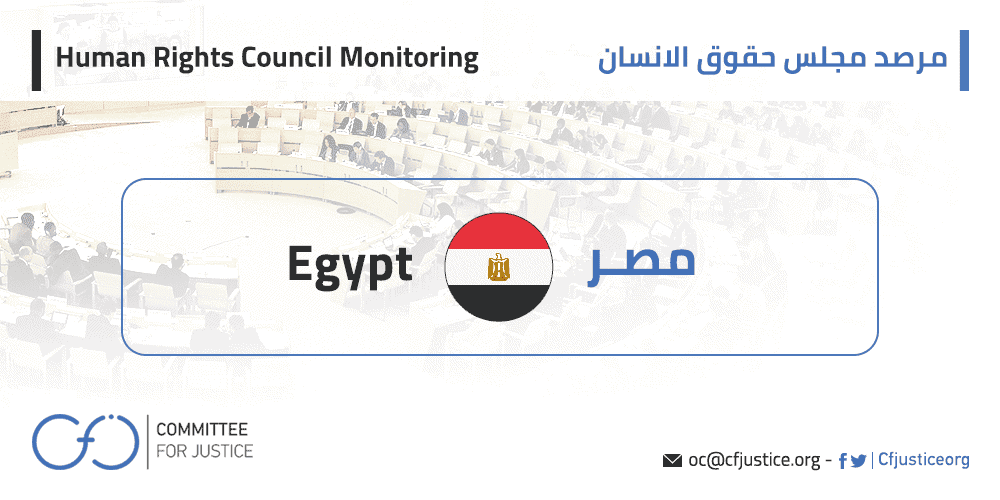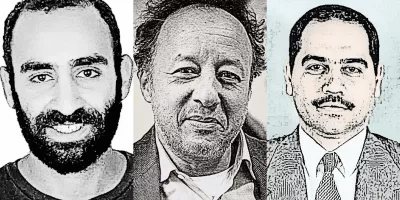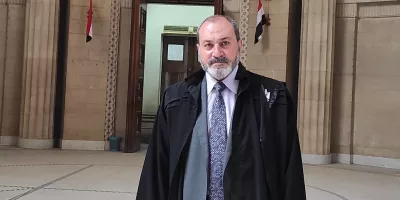News briefing
Translated and edited by: Committee for Justice
Geneva, September 7, 2021
UN experts have expressed their concerns about Law 149/2019 (the NGO Law), known as “the law regulating the practice of civil society work”, and its executive regulations for the year 2021, which limit civil society’s access to funding, and enable the executive authority in Egypt to exercise supervisory oversight, and grant it broad discretion to regulate and dissolve civil society organizations.
Repression of human rights defenders:
In their memorandum sent to Egyptian authorities on July 8, 2021, which has not yet been responded to, the experts noted that this law was adopted in a context where many human rights defenders are under investigation or sentenced for their legitimate activities in the defense of human rights.
The experts also pointed out that while the NGO Law is the only legislation that specifically governs the work of civil society in Egypt, there are many other laws that impede the work of civil society organizations. These laws include the Cybercrime and Information Technology Law, the Terrorist Entities Law, the Anti-Terrorism Law, and the Protest Law.
‘Not subject to extensive societal discussion’:
The experts explained that the legislative processes of the NGO law and its bylaws took place without sufficient transparency or without consultation with broader civil society organizations. Both the NGO law and its bylaws were discussed in one day in the Egyptian parliament, to prevent civil society from providing input to legislation that will ultimately affect its work.
The experts cited Article 14 of the law as an example, which states that NGOs can work in “community development fields […] taking into account the development plans of the state and the needs of society.” If an NGO wants to operate outside the “government development plans and community needs”, it must obtain a permit from the Central Unit for Associations and Civil work, an entity established by virtue of the law to ensure NGOs’ compliance with it.
The experts said that due to the ambiguity surrounding the wording of Article 14, it is still not clear whether work in the field of human rights and related matters needs such a permit, as well as the phrase “taking into account the development plans of the state and the needs of society”, as it may constitute a barrier for the organization to perform its functions. In other words, even if the NGO is legally established, its activities are still subject to other permits, such as updating its activities in its statutes, or if it wishes to do something broader than what is stipulated by law.
Furthermore, Article 15 of the NGO Law lists the activities prohibited for NGOs. Among other things, it is prohibited to carry out activities that violate public order, morals, national unity or national security, or those that advocate, encourage, support or finance violence or terrorist organizations, conduct opinion polls and publish or make their results available. The experts pointed out that such abstract language may be used at the discretion of the authorities arbitrarily to impede the activity of NGOs.
The experts stated that Article 31 of the law affirms the right of local associations to join local or international counterpart organizations to join or cooperate with them after notifying the Central Unit (Article 19 of the NGO Law). However, the regulations set arbitrary conditions that could impede such cooperation, such as requiring that there be some tangible benefit behind affiliation/cooperation, while leaving interpretation of the meaning of “benefit of cooperation” to the discretion of the governing body, subjecting inter-organizational cooperation to reporting and approval by authorities where possible. Such conditions create an environment that discourages NGOs from cooperating to avoid further reporting and approval.
The experts pointed out that the NGO law gives the competent minister the power to suspend or revoke the license of NGOs if the organization is violating the law or is acting outside the activities for which the license was granted. However, neither the NGO Law nor the bylaw defines the competent authority. The license may also be administratively revoked on unspecified grounds such as a threat to national security or public peace or an infringement of public order (Article 74 of the NGO Law).
Foreign funding:
As for foreign funding, the law requires NGOs to notify the Central Unit of receiving funds, whether the source is an Egyptian natural or legal person or a foreign NGO licensed to operate in the country. This means that the NGOs need to inform the government every time they receive funds, and they have to justify how the funds will be used according to the situation of the NGO.
Also, for funds received from abroad, the law and its regulations require permission from the government before disbursing funds received from abroad. The Central Unit must be notified within 30 business days of receipt of funds, which may approve or reject funds within 60 business days. Neither the law nor the bylaws list the reasons for refusing funds.
The law narrows the civil society space in Egypt:
The experts expressed concern that the effect of the law and the bylaws would be in direct contradiction to its stated goal of truly serving the public interest and could harm the civic space in Egypt.






